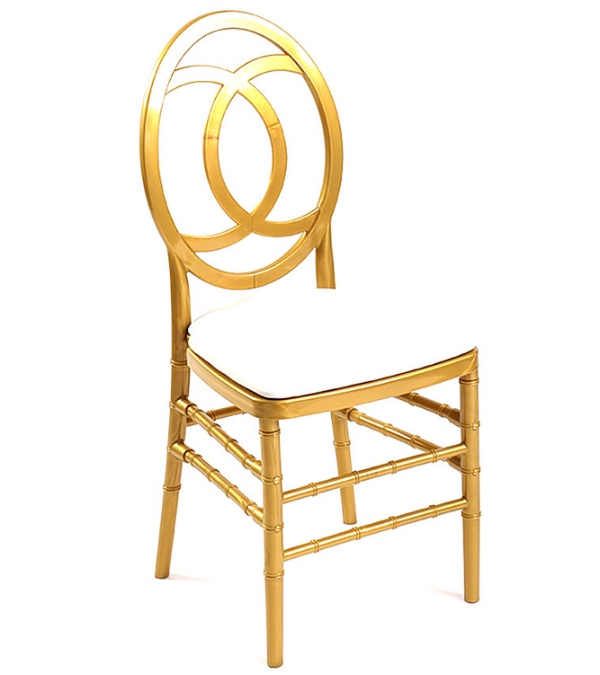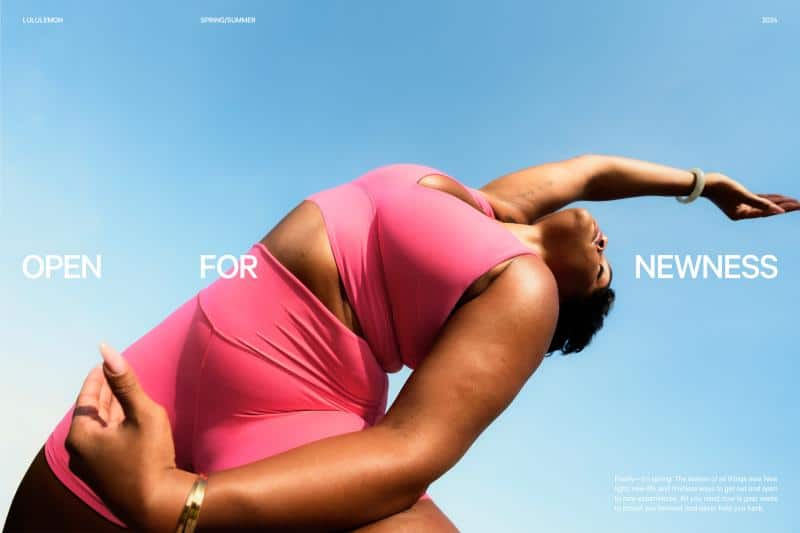Chanel might not be in the business of making furniture, but the Paris-based brand – which recently revealed that it brings in $9.62 billion in annual revenue – does not want you using its trademark to sell furniture, either. According to a lawsuit that Chanel filed in U.S. District Court for the Eastern District of New York last month, Luxe Event Rentals & Décor (“Luxe”) has been providing dining chairs and wooden bar stools for events that make use of Chanel’s famous “CC” logo, and is on the hook for trademark infringement, false advertising, and unfair competition as a result.
According to Chanel’s complaint, Brooklyn-based Luxe is not only running afoul of trademark law by offering up dining chairs and bar stools that make use of its double-C logo, which is “well known to the consuming public and trade as identifying and distinguishing Chanel exclusively and uniquely as the source of origin of the high quality products.” It is also actively breaching an existing settlement agreement it entered into with Chanel in July 2017.
Yes, as Chanel claims in its suit, it first learned that Luxe was offering the interestingly-named “Chantel” chairs and stools bearing its double-C logo in 2016 and swiftly “sent a cease and desist letter to Luxe [demanding that it cease] distributing, advertising, [and] renting … dining chairs and wood bar stools bearing infringements of [its] CC monogram trademarks.”

One of Luxe’s “Chantel” dining chairs
Ultimately, Luxe and its sister company entered into a settlement agreement with Chanel in which they agreed to discontinue all use of the Chanel trademark, including in their “advertising, promotion, or marketing of any products, whether in printed materials, oral representations, or online content such as websites, keyword search advertising, and meta-tags.”
But, it turns out, the parties had not seen the last of each other after signing off on the deal, which enabled Luxe to avoid facing off against the Karl Lagerfeld-helmed house in court. Chanel claims that it recently discovered that, despite the existence of the settlement agreement, Luxe has continued to use the exact chairs that had caused the dispute to begin with. By failing to uphold the requirements set forth in the settlement agreement, Chanel claims that Luxe is in breach of their agreement.
While Chanel’s claim that Luxe breached their settlement agreement will be easy enough to prove, it will be interesting to see if – assuming the parties do not attempt to settle before trial – Chanel is able to make its case for trademark infringement, including: 1) that the double-C design on Luxe’s chairs is serving as a trademark (and not merely an ornamental design) and 2) that Luxe’s chairs are “likely to [have] caused confusion and mistake among the consuming public [as to whether there was] some affiliation, connection or association between [Luxe] and Chanel,” or that the Chairs were being sold or used “with the sponsorship or approval of Chanel.”
Chanel, which is also claiming trademark dilution, is seeking monetary damages, including all profits that Luxe made in connection with the infringing chairs, and injunctive relief, which would immediately and permanently bar Luxe from using its double-C logo in any capacity.
* The case is Chanel, Inc. v. Luxe Living Design LLC DBA Lux Event Rentals & Décor, 1:18-cv-03769 (EDNY).













